The Last Train from Madrid

Brief Synopsis
Cast & Crew
James Hogan
Dorothy Lamour
Lew Ayres
Gilbert Roland
Karen Morley
Lionel Atwill
Film Details
Technical Specs

Synopsis
The Spanish Civil War is destroying Madrid, and the military offers a last chance for those people to whom they grant passes to leave on a train headed for Valencia at midnight. That day, Colonel Vigo tells his second-in-command, Captain Ricardo Alvarez that he is releasing some prisoners who have agreed to fight at the dreaded battleground of Cordoza. Among the prisoners is Eduardo de Soto, one of a brotherhood called the Five Valiants, of which Ricardo also is a member. Ricardo helps Eduardo escape the military police and provides him with a hiding place. Having been in prison for two years, Eduardo's first thoughts are of his girl friend, Carmelita Castillo, who, although she is thrilled to see him, has not waited for him, and has become engaged to Ricardo, unaware that the men are acquainted. Carmelita is now torn between Ricardo, who has been a loyal companion, and Eduardo, whom she has loved for so long. Eduardo gallantly hides his disappointment, but Ricardo senses something between his two friends. Meanwhile, people in the city are frantically trying to obtain passes for the midnight train. A female soldier, Maria Ronda, deserts her troop and hitches a ride with American reporter Bill Dexter, who promises to help her see her father before he is executed. Bill manages to get Maria in to the prison to see Carlos Ronda, and both men make her believe that he has been reprieved, so she will leave Madrid without hesitation. As they leave the prison, Carlos is executed, although Juan Ramos, one of his executioners, refuses to fire. Because of his apparent cowardice, Juan is transferred to Cordoza, but is given two hours before he must report. As he walks through town, Juan comes to the aid of a man who has just been shot by a sniper. He and Lola, from whom the man had just departed, take the dead man to her room, where Juan desperately begs her for the man's pass. While talking, Juan and Lola discover they both spent their childhoods in the same town, and as they reminisce, they fall in love. Juan decides to add Lola's name to the pass as his wife. In another part of town, Bill and Maria escape an air raid in a cellar, where Bill gets drunk on wine and proposes. When he revives in his apartment from a stupor, he tells her it was all a joke, and while he is at the door getting his pass from military police, Maria, brokenhearted, runs away. In a restaurant, Eduardo meets a former lover, Baroness Helene Rafitto, who promises to get him a pass so they can leave together. At her apartment, she pays her cruel lover, Michael Balk, $20,000 for his pass, but when he threatens to call the police and tell them to cancel the pass, Helene becomes filled with hatred for him and kills him. Ricardo is then arrested for treason for helping Eduardo. He escapes from the police to warn Eduardo, and Vigo orders his men to shoot to kill should they find Ricardo. Finally, the train prepares to board, and the station is mobbed. While Juan and Lola are on their way to the train station, they are attacked by robbers. Lola is mortally wounded during the ensuing gunfire and dies in Juan's arms. At the driver's urging, he continues on to the station. Eduardo boards the train with the pass Helene gives him, and when police come near their compartment, he moves to another while Helene is arrested for Balk's murder. Bill and Maria find each other at the station and successfully board the train. Vigo orders the train delayed until Ricardo and Eduardo are found, but Ricardo holds him hostage and forces him to call in an "all clear" so the train will leave. The train departs, and as Ricardo leads Vigo out of the building, intending to hold him until the train arrives in Valencia, one of Vigo's compatriots shoots him. Vigo disarms him and discovers that Ricardo's gun was never loaded. Impressed by Ricardo's loyalty to his friend, Vigo allows the train to continue without interruption to Valencia, and Ricardo dies in peace. Maria and Bill plan to marry, and Eduardo and Carmelita are reunited.

Director
James Hogan
Cast

Dorothy Lamour

Lew Ayres
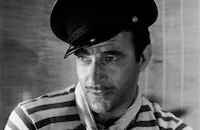
Gilbert Roland

Karen Morley

Lionel Atwill
Helen Mack

Robert Cummings
Olympe Bradna

Anthony Quinn
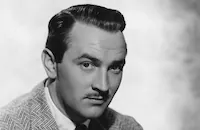
Lee Bowman
Jack Perrin
Harry Semels
Frank Leyva
Roland Rego
Frank Lyman

Merrill Mccormick
Robert Strange
George Lloyd
Louise Carter
Henry Hale
Karl Hackett
Hooper Atchley
Otto Hoffman
John Oliver
John Picorri
Peter De Rey
Allan Garcia
Dan Colette
Guy D'ennery

Ralf Harolde
Joseph De Stefani
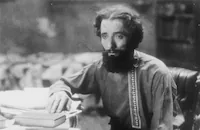
Nigel De Brulier
John Marshall
Stanley Price
Sam Appel
Stanley Fields
Francis Mcdonald
George Magrill
Carl Harbaugh
Jack Gardner
Sid D'albrook
Robert Middlemass
Bert Le Baron
George Macquarrie
Rollo Lloyd

Henry Brandon
Louis Natheaux
Maurice Cass
Alonzo Price
Harry Worth
Donald Reed
Leonard Sues
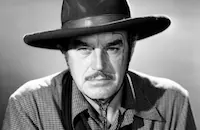
Harry Woods
Ben Hendricks
George Lollier
Bob O'conor
Stanley Andrews
Hallene Hill
Francis Ford
Reynolds Denniston
Adele St. Maur
Yvonne Pelletier

Bess Flowers
Carlos De Valdez
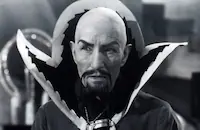
Charles Middleton
Gordon De Main
Bonita Weber
Tiny Rowland
Sid Nene
Charles Stevens
Sharon Lewis
Ricca Allen
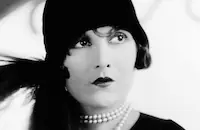
Evelyn Brent
Libby Taylor
Crew
George M. Arthur
Roland Asher
Hugh Bennett
True Boardman
Everett Douglas
Hans Dreier
Harry Fischbeck
Elsie Fox
Paul Hervey Fox
A. E. Freudeman
Earl Hedrick
William Lebaron
Gene Merritt
Louis Mesenkop
Boris Morros
Louis Stevens
Robert Wyler
Adolph Zukor

Film Details
Technical Specs

Articles
The Last Train from Madrid
This film's other claim to fame lies in having been the first Hollywood feature to acknowledge the Spanish Civil War, which broke out in 1936. (Wings of the Morning, a 1936 British film, contains a brief reference to the war.) Quinn plays a Spanish army officer providing passage by train to various people trying to escape Madrid before the borders close. He helps an old friend (Roland) who's in political danger, but soon a melodrama arises between them and Roland's old girlfriend (Lamour). Meanwhile, Quinn's commanding officer (Atwill) starts to suspect Quinn of turning traitor. Ayres is on hand as an American reporter.
Variety called The Last Train from Madrid "a mixture of Grand Hotel and Shanghai Express," noting that Paramount "doesn't take any political chances with this one." Indeed, the film shies away from presenting any political arguments for or against the war, instead treating it as a backdrop to melodrama. As noted film scholar William K. Everson later wrote: "Hollywood in the '30s was notably reluctant to take any kind of a stance on European political affairs... Exhibitor groups resisted it, and were strong enough to arrange effective boycotts. Pressure groups were constantly at work, and towards the end of the '30s, America's own Neutrality Act technically made it a violation of that act to take obvious sides."
Two months after this film's release, the Spanish Civil War cropped up in two more films: Twentieth Century-Fox's Love Under Fire (1937), starring Loretta Young and Don Ameche, and the well-received documentary The Spanish Earth (1937).
Look fast for Alan Ladd as a soldier and Cecil B. DeMille in a crowd.
By Jeremy Arnold

The Last Train from Madrid
Quotes
Trivia
Notes
A pre-release news item in Hollywood Reporter indicates that Al Santell was originally intended to direct. Prior to the film's release, Variety reported that "anti-Fascist and anti-war organizations" were against the production of this film, because they believed it would be "strictly uncolored melodrama." An April 1937 telegram written by writer Louis Stevens in the AMPAS Library production files indicates that Stevens protested Robert Wyler's co-writer credit and claimed full authorship of the screenplay. By May 1937, Stevens agreed to Wyler's credit at the insistence of producer George M. Arthur. According to the New York Times, this was the first picture, other than newsreels and documentaries, to involve the Spanish Civil War. According to Hollywood Reporter, several other major studios also bid for the original story. The pressbook in the copyright records states that Gilbert Roland's father, Don Francisco de Alonso appears in the film, in addition to Cecil B. DeMille, who appears in a crowd scene. The pressbook also notes that background scenes were filmed on location in Palencia, Spain, and some scenes were filmed at DeMille's Spanish-style bungalow on the Paramount lot.

Miscellaneous Notes
Released in United States 1937
Released in United States 1937














